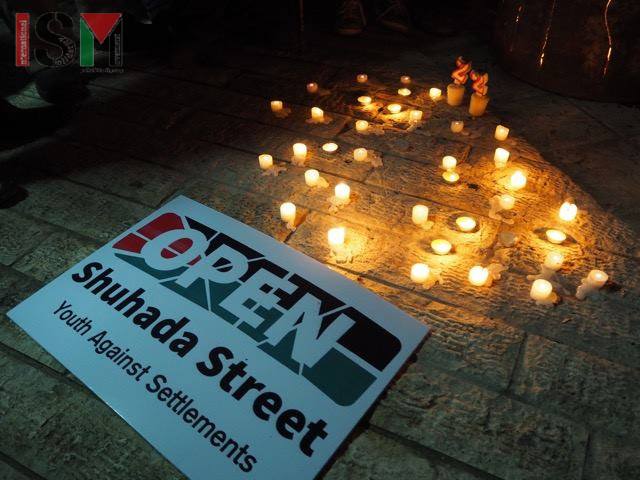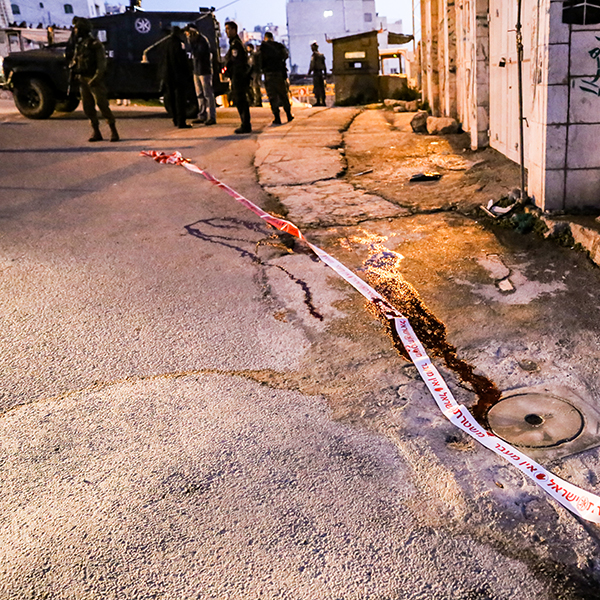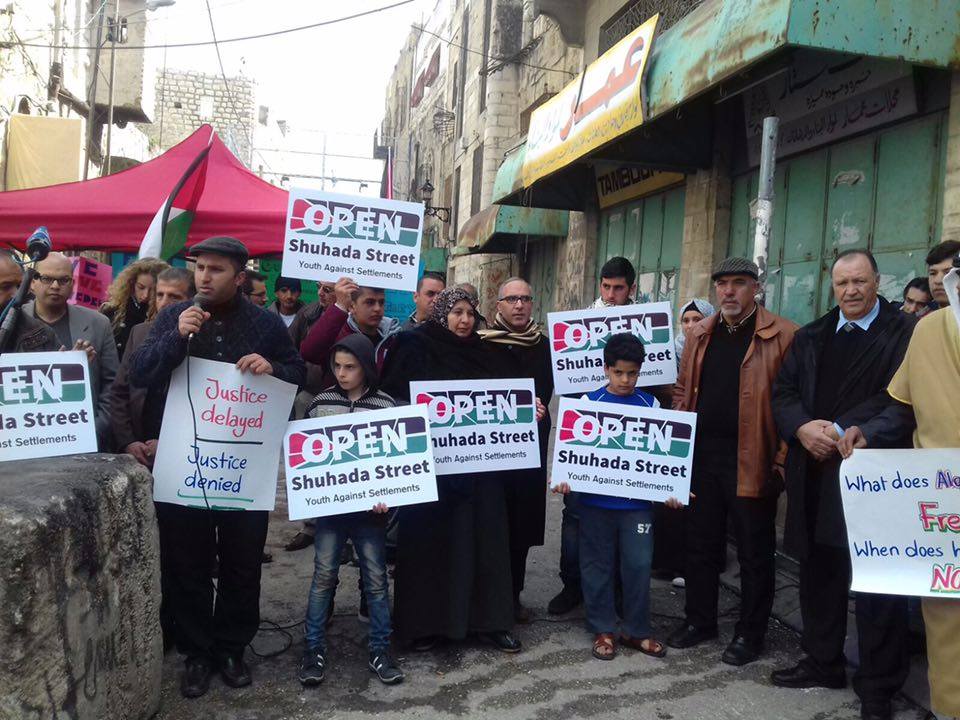Tag: Settler violence
-
Aggressive settler interrupts nonviolent commemorative event hosted by Youth Against Settlements
24nd February 2016 | Youth Against Settlements | Hebron, occupied Palestine Notorious settler Anat Cohen interrupted a peaceful movie screening, which was hosted by Youth Against Settlements to commemorate the victims of the Ibrahimi Mosque Massacre in 1994. Every night, Palestinians gather around a bonfire in the Salaymeh neighborhood of occupied Hebron to keep watch…
-
Children face fear and threat of violence after young woman shot in Hebron
22nd February 2016 | International Solidarity Movement, al-Khalil team | Hebron, occupied Palestine A day after 21-year old Yasmin al-Zarou was gunned down by Israeli forces when passing the Salaymeh checkpoint, many of the children were forced to walk right past where she had layn on the ground bleeding – where her blood is still…
-
Youth Against Settlements holds press conference in front of Shuhada Street checkpoint to announce 2016 Open Shuhada Street campaign
20th February 2016 | Youth Against Settlements | Hebron, occupied Palestine Youth Against Settlements held a press conference in front of the Shuhada Street checkpoint to announce the beginning of the Open Shuhada Street Campaign. Over a hundred people attended. Palestinian TV, AL-Quds TV, and other local and international media organizations were present. Youth Against…



